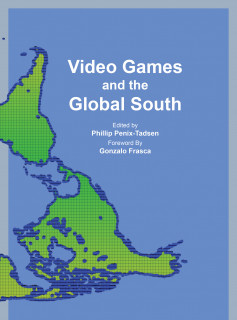Video Games and the Global South

The time has come to redefine games and game culture, from south to north. While video games are a quintessentially global technology, with game consumption, production and related practices taking place in virtually every country in the world today, players in different regions have received, created and even played video games differently, because cultural and national context impact the circulation and meaning of games in countless ways. Many geographical locales once considered part of the high-tech “periphery” are in fact home to longstanding and widespread technocultures with their own unique characteristics. This is readily evident in the contributions to this anthology, which examine the cultural impact of video games in regions including Africa, the Middle East, Central and South America, the Indian subcontinent, Oceania and Asia. An analysis of the games and game cultures of the vast region referred to as the “global south” sheds light on the cultural impact of gaming in less-frequently-examined geographical areas, offering evidence of video games’ impact on economics, creative production, education, popular culture and political discourse, as well as showing how cultural context impacts games on the levels of development, design, reception and play practices, offering insights that can help us to better understand video games as a truly global medium. The innovative research in Video Games and the Global South focuses on a range of topics including art games and serious games from the global south, postcolonialism and cultural representation, player communities, software modification (modding), intercultural communication online, racism and sexism in game culture, the global growth of eSports, social media use in relation to gaming and the use of games to connect users and communities across the globe. Some fifteen years ago, Uruguayan theorist and game developer Gonzalo Frasca spoke of the possibility of creating “video games of the oppressed,” using the medium as a tool for education, socio-political awareness and consciousness-raising. In short, Frasca advocated for the appropriation of the means of game production by actors in the global south, and the repurposing of these technologies in ways that would benefit the region’s inhabitants. A decade and a half later, we can see that many gamers and game developers from across the global south have taken up this challenge, contributing to game cultures and creating games that respond to the obstacles and affordances of their particular geographical, socioeconomic, political and cultural contexts. Video Games and the Global South brings together perspectives from a range of disciplines, critical methodologies and theoretical approaches. Together, the 20 contributing essays advance the critical methodology for analyzing the relationship between games and culture, as well as historically contextualized insight into the cultural impact of video games and the development of games and game cultures across Africa, the Middle East, Central and South America, the Indian subcontinent, Oceania and Asia. The work of this anthology’s contributors offers a clear view of how global technologies become locally situated, helping redefine how we look at games and game culture, from south to north.
